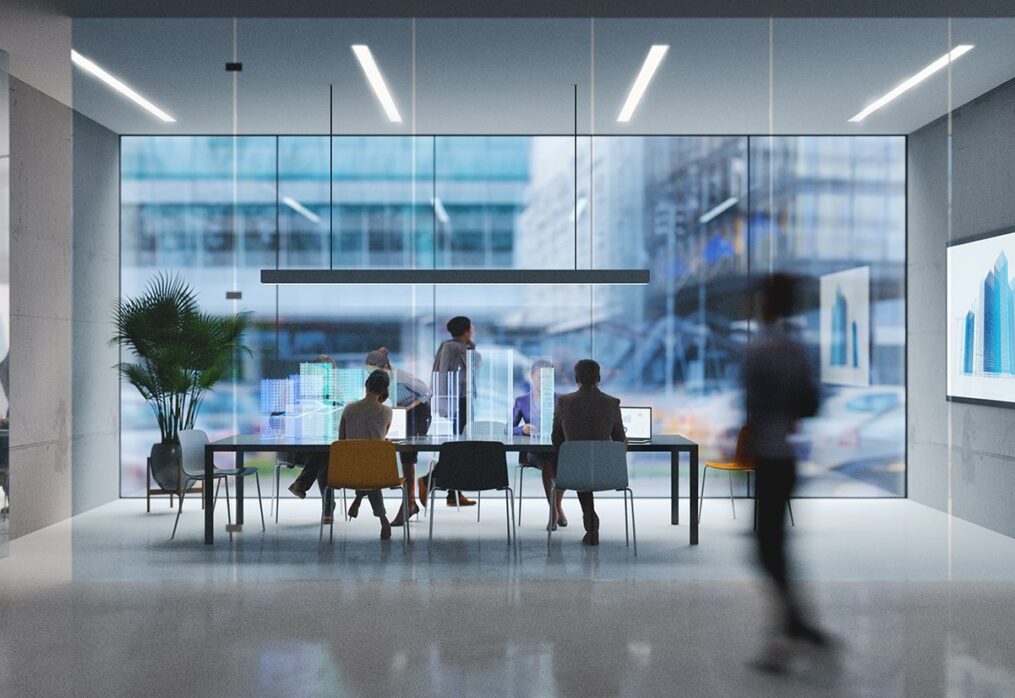The “labor drain” will come to an end because evolution needs people

By Oscar Barone, CEO of Conciliac
The “The great resignation” and “Big quit” movements that were born in 2020 driven by the Covid-19 lockdown are bottoming out in the face of a reality: people are returning to the office by choice and starting the race for the adoption of knowledge and adaptation to the new role where innovations in technology will be in charge of adding quality of work life. What is the role of companies in the post-pandemic Darwinism?
There was a period, not so long ago, when the largest companies in the world became the best places to work because they offered a kind of “amenities” aimed at attracting and retaining talent, but also at gaining their loyalty, which would be the same as “wearing the company name”.
Back then, desks were moved out of offices to make room for ping pong tables, poufs for thinking, and community scenarios were recreated where representatives from different teams brought their plans and ideas to discuss them with others.
The picture was attractive, but dissatisfaction was still part of the work environment. Employees lost their enchantment with the tempting offer in no time, and gradually began to feel more and more tempted by the “freelance” life, which is no more and no less than that of an entrepreneur, perhaps as the owners of the companies for which they where representing.
However, it was not until the pandemic began that the dream of working remotely from the beach started to become a trend as dizzying as the health crisis itself.
Connectivity and technological tools turned the living rooms, bedrooms, kitchens and balconies of houses and apartments into a simulacrum of a paradisiacal beach.
The exodus began
P Paradoxical as it may sound today, what now – but in truth has always represented a threat to jobs (and I am referring to technology) is what gave the opportunity to the first daring people who, during the pandemic, started what later became known as a trend.
“The great resignation”, “Big quit” or “Quiet Quitting” developed as manifestations that did not go unnoticed after remote work became an option and then became a real concern.
Did technology conspire against the companies themselves? Instead of allowing equipment and new tools to speed up processes, the first ones did not take long to know they were indispensable and grabbed this bastion to claim as many objections as they had in the inkwell – they did not ask for one more game of ping pong, nor the day off for their birthdays.
Could you say that technology motivated the response? Yes, and I can justify the fact that, from one moment to the next, Silicon Valley itself emptied out and the threat of a Big Tech all-powerful to throw everyone out became a meme rather than a glove-raising.
But perhaps this psychological backlash was positive, the mass of employees who left their chairs to work in the “apparent” paradise soon realized that the bubble has more costs than freedoms. It could also be said that the stimulated reaction began to turn, fortunately, into proactivity.
Post-pandemic Darwinism and the formation of the proactive mindset
After taking the ping pong tables out of the offices and employees expressing the rebelliousness that evolution has brought about, it is time to go back to basics, which does not mean at all that we will return to normality as we knew it.
Right now we are going through a first stage of post-pandemic Darwinism in which it is necessary to form a proactive mindset.
This concern comes from people, not from companies, although the latter will have to be open to understanding the information imparted by human sense, basically because business is still in the hands of humans who – as has been the case since the Industrial Revolution and up to now, but with a different degree of complexity – have to understand before doing.
For companies, it is crucial that they work as soon as possible on different strategies to meet the challenge of creating sustainable work cultures.
But just in case this causes more uncertainty than certainty, and based on the conclusions of the recent International Congress on Educational Innovation at the Tec de Monterrey, here are some key points that I believe should not go unnoticed:
- Work and learning will be a continuous process to carry forward a change of mindset aimed at proactive results. In this sense, I would like to add a statement I have taken from one of my recent readings -El sinsentido común, by Borja Vilaseca- that under the same author’s warning: “Whatever happens, our life will never be the same as before”, we are protagonists of a “cultural metamorphosis” in which the learning acquired so far will become obsolete sooner or later, and what we have to learn is still in progress. Companies, governments and individuals themselves have to make a decision as to their place as creators of the destiny we will have.
- Knowledge and skills are the generators of creative beings capable of weathering this tsunami, and then some. Although the World Economic Forum’s 2020 Report warns that approximately 85% of jobs in 2030 have not yet been created (and therefore, the job desired by generation Z, also known as Centennials, may not yet exist), this generation will enter the labour market with demands that start from their education, and even the motivations for which they carry out a role in a company or in a city. Therefore, it is essential to unlearn what they have learned in order to relearn all that is necessary as critical and creative beings.
- We need to press the button to reset our minds and stop seeing technologies as a competition or a threat, but as a tool. Many technology companies are laying off employees, suggesting that exponential technologies are replacing them, when in reality such actions hide other decisions that have nothing to do with artificial intelligence, but rather with the lack of human insight when it comes to defining business and investment strategies. As a society, it is up to us to make a double reading of reality and for this we do not need to do a lot of research, the information is ever closer.
- Carrot and string are no longer a retention resource. Teams will flow and companies will have to understand and implement that flow of knowledge. No exodus, no layoffs, but rather, objectives and a better work culture. It is time to give employees or collaborators a “what for” that challenges them and makes them part of a goal.
The much feared thing is already happening. We are beginning to experience the exponential era and nothing will be like before. But, at the end of the day, the fear is just an exacerbation of science fiction.
There are already self-driving cars that begin to carry passengers, robots that serve fast food, algorithms that learn to reason as humans would to provide logical answers, and so on.
It is indeed possible that right now you believe that technology is a “her” and not an “it”. Technology is not a person, whatever its function, it is still a “something” or a “thing” that requires people to function, but not to “exist”, basically, because existence is a concept that does not concern things, René Descartes would say, until they think about it.
And if there is one thing I would like to keep in your minds on the basis of this column, it is that, unlike a piece of wax melting in the fire as an existentialist explanation of beings and things, technology can take different forms, as many as we want to give it for the sole purpose of making our lives more enjoyable.
No exodus, no layoffs. Evolution.
Original column published in https://www.forbesargentina.com/columnistas/el-exodo-laboral-terminara-porque-evolucion-necesita-personas-n29741/amp
